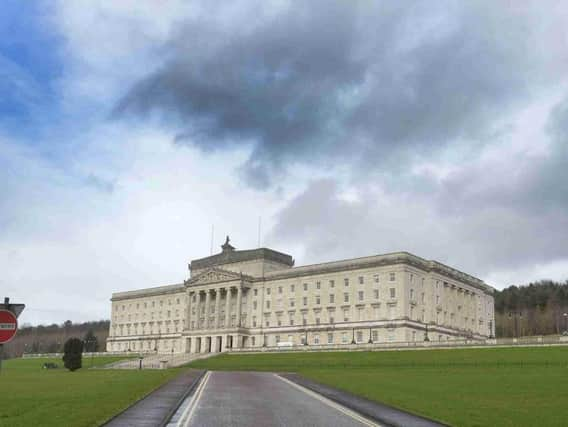Northern Ireland powersharing talks: How did we reach this point?


How did we get to this point?
The last Sinn Fein/DUP-led powersharing administration collapsed in January amid a bitter row over a botched green energy scheme. The late Martin McGuinness effectively pulled the plug on devolution by resigning as deputy first minister, a move that forced DUP first minister Arlene Foster from her job. A snap Assembly election was subsequently called - a poll that saw Sinn Fein close the 10-seat gap between it and DUP to a solitary seat. Unionism also lost its overall majority in the Assembly for the first time. Negotiations to form a new administration in the wake of the election made little progress, collapsing a day before last Monday's deadline to form a new executive. The DUP and Sinn Fein blamed each other for the breakdown.
So if the deadline was broken, how come there are now more talks?
Advertisement
Hide AdAdvertisement
Hide AdTo say political deadlines in Northern Ireland are elastic is an understatement. There is a long history of politicians missing apparently rigid cut-off points only to keep negotiations on the road - perhaps most famously in the lead-up to the 1998 Good Friday Agreement. Last Monday's deadline was written in statute - a new executive to be formed within three weeks of an election - and Northern Ireland Secretary James Brokenshire was obliged to call yet another snap poll if the deadline passed. He did have some wriggle room however, as he was legislatively bound to call an election within a "reasonable period". Mr Brokenshire is using this period to facilitate another round of talks. If an agreement is reached, he has indicated he will move to amend the legislation to retrospectively change the three-week deadline so an executive can be formed without needing to bother the electorate again. However, if there's no deal, he has made clear he is not keen on another election. In such circumstances, it is therefore likely the Government would again change the legislation - but this time to reintroduce direct rule from London.
If the last talks were a disaster, will these be any different?
Descriptions of the previous round of negotiations ranged from "unstructured" to "shambolic". A senior Ulster Unionist described them as the worst he had ever been involved in. There was not a single high-level round table meeting between the five main Stormont parties throughout. Sinn Fein's insistence that Mr Brokenshire could not act as chair, due to republican disquiet at recent comments he has made on prosecutions of soldiers for Troubles offences, was one of the reasons for the lack of set format. Sinn Fein and the SDLP have both called for the appointment of an independent chair this time round, a demand the Government has rejected. While Mr Brokenshire has promised an "intensification" of engagement, it remains to be seen whether this process will be any more productive than the last.
Who is involved?
The UK and Irish governments and the five main Stormont parties, the DUP, Sinn Fein, the SDLP, the Ulster Unionists and the Alliance Party. While the SDLP, UUP and Alliance were not part of the last administration, instead opting to sit on opposition benches, they all could potentially retake seats in a new executive if a cross-party deal materialises.
If there is no executive, who is running Northern Ireland?
Advertisement
Hide AdAdvertisement
Hide AdNot only is there no executive, but the last one failed to agree a budget for the 2017-18 financial year before it imploded. So, for the first time in devolution, a senior civil servant has taken over control of Stormont's finances. David Sterling, the permanent secretary in the Department of Finance, is in charge of distributing cash to keep public services operating. Without a budget, departmental officials have been told to be prudent with spending. They are also unable to undertake any new financial initiatives, as only politicians are able to set policies. While the situation will enable public services to operate in the short term, officials believe it will not be sustainable for any more a couple of months, as policy-driven decisions will need to be taken sooner rather than later. The Northern Ireland Office is well-aware of the situation and, if local politicians fail to form a government and strike their own budget, Mr Brokenshire has made clear he will intervene to ensure budget certainty.
What's the "deadline" this time?
The cut-off point is less defined than the last talks. Mr Brokenshire has spoken of a "short few weeks" while a paper circulated among the parties sets a time frame of 10 days. The Secretary of State last week told the Commons he would take legislative steps after the Easter recess on Tuesday April 18 - either to facilitate a new executive if there is a deal or, if not, to take steps to sort out financial problems caused by lack of budget and non-approval of rates bills to pay for local government services. The latter steps could be the first on the road to full direct rule. On the basis of those statements, Northern Ireland could well be facing another make-or-break Good Friday, almost 20 years since the last one.